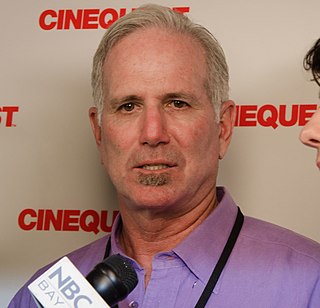A Quote by Fred Willard
I had just done a movie called 'How to Beat the High Cost of Living,' and it didn't get a good review. And the same people sent me the script for 'Airplane!' for the Robert Hays part. I read it, and there were a lot of plays on words, and I said, 'I don't like this kind of comedy.'
Related Quotes
I think Memento movie was hard because people didn't get it, they just didn't understand it. Not from the stage when we read the script and liked it. It's sort of a famous story now how we finished the movie and showed it to distributors and nobody wanted it. So it wasn't just they didn't get the script, they really didn't even understand the movie when it was done. But I think that was a particularly hard one. I don't think it was harder because we were girls, but I do think obviously there are particular challenges to working in a male-dominated industry.
When I got the script to this movie, The Good Girl, I read it in an hour. The writer, Mike White, has an ability to create characters that are so creepy and dysfunctional and human, with this duality that makes people feel empathy for them at the same time. My first thought was 'Was this sent to the right person?' I called my agent. 'Are they sure? Let's say yes before they realize they've sent it to the wrong person!'
It wasn't exactly a cattle call. I had an agent, and they were seeing people for the parts, so my agent said, "Here's the script, see if there's anything that speaks to you." And I did, and I called my agent and said, "I think this character Data is kind of interesting," and she said, "Well, okay, I'll get you the appointment with Junie Lowry." I had to read with the casting agent first, 'cause nobody really knew me then. Then after that, I had, I think, six different auditions for the role. And finally it was me [on Star Trek].
I read the script [ of 'Steve Jobs' movie ], and it was very, very good. I wasn't sure they would want me to be in the movie, but I auditioned for it. Which I hadn't done in a few years. But I had auditioned in the previous few years for another movie that I did not get the part. And so my track record wasn't good. But I really wanted to audition because I was worried that I was going to blow it, and I wanted it to be on them for choosing me.
I think it took me seven years before I got the script for 'Frozen River.' That's the movie I had been looking for my whole career. When I read that, I knew I had to shoot that movie - that it'd be a game-changer. It was one of those scripts where I read it, and I was like, 'This movie could get into Sundance.'
Years ago I was going to play Chet Baker in another movie and I really felt drawn to that character and the script is good and I met with Robert and we seemed simpatico and we developed. But I had a real passion for that role and that brought me deep into that film 'cause I got the sense that Robert Budreau was going to really let me be creative inside this part.
I had to audition for Fandango. When I read the script, the role that was interesting - so everyone thought - was the role that Costner played. He was the cool guy. And I read the script, and my representation at the time said, "That's the role you should read for." And I was like, "Really? How about I read for this other role." And they went, "Well, you're not going to get that role."
Gian Luigi Polidoro and his girlfriend had written this script, it was an American comedy, and they decided I was the guy to play the part. I was young, they offered me the lead in the film, and I said, "Sure, I'll do it." And I'm telling you, there is a movie waiting to be made about the making of a movie like that, particularly at that time in New York. I mean, we shot all over the streets of New York without permits. We would literally grab a shot and run. But Rent Control... I think the total cost was $100,000, and to this director's credit, I think it looks like $200,000.
There was a thing in the Andy Kaufman movie that Jim Carrey [Man On The Moon] about how he would do it. I didn't even see the movie. I read the script. But someone asked me, "Do you know what the best part of the Jim Carrey/Andy Kaufman movie is?" And I said, "me lee see ree bee." I just knew that would be the best part.
































